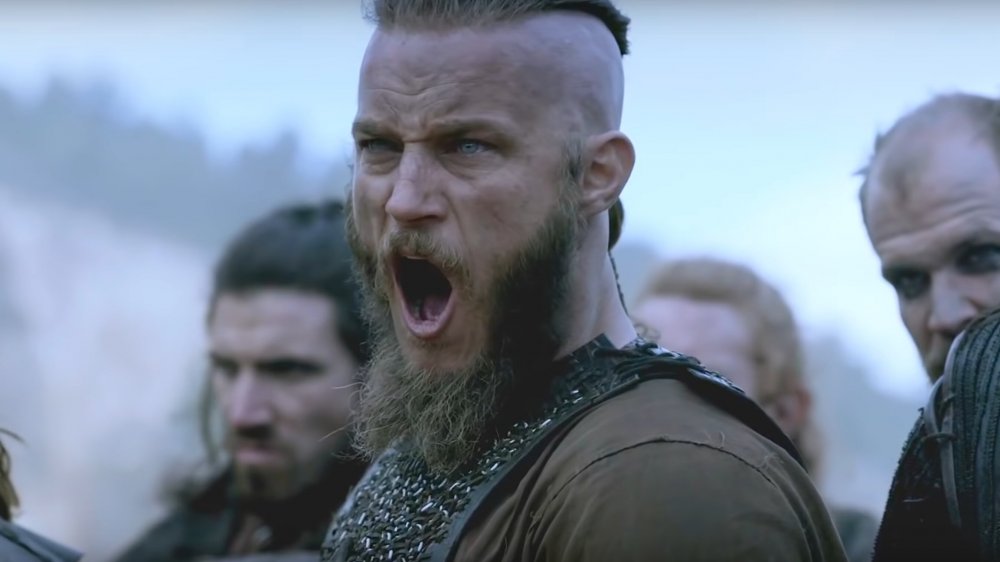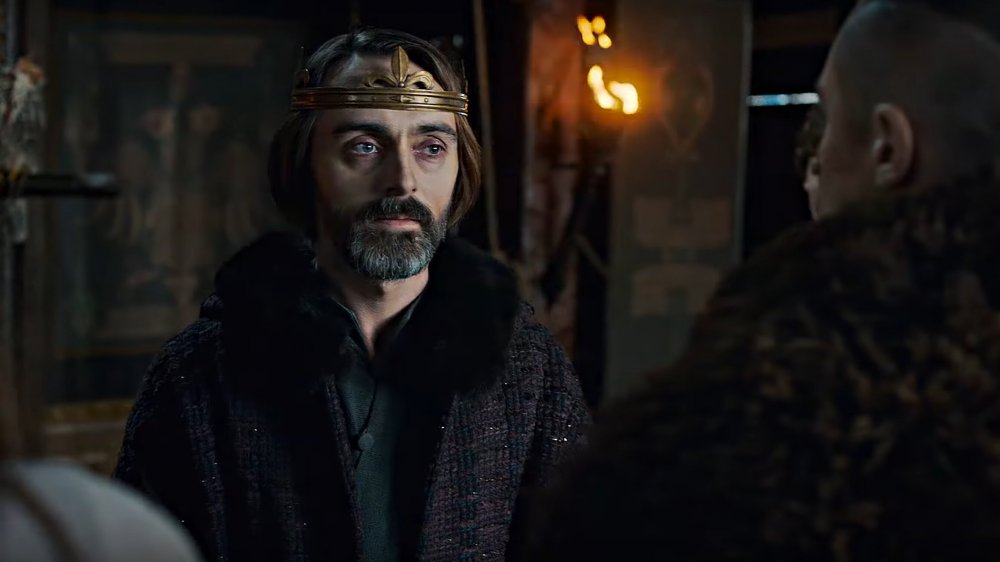Why The Last Kingdom Is Actually Very Different From Vikings
With enough time lapsed for everyone who will finish Game of Thrones to have finished Game of Thrones, people may be looking for their next fix of medieval-esque drama, sex, and blood — meaning most likely either Vikings on Amazon Prime or The Last Kingdom on Netflix. Here, however, some may pause. First, both series seem to be riding the Thrones train, but more importantly, it seems as though The Last Kingdom is merely a riff off Vikings. Both depict the conflict between Nordic people and their Saxon victims. Characters overlap as well. At a glance, The Last Kingdom is merely retreading ground covered in Vikings, but from a Saxon perspective.
Despite these apparent similarities, however, the shows create their stories from almost opposite types of historical sources. The difference is most clearly seen in the contrast between the first focal character of Vikings, Ragnar Lothbrok, and the first focal historical character of The Last Kingdom, Alfred the Great. Most of what we know about Lothbrok comes from legends woven around the Vikings and the occasional reference in a chronicle. Because of this, Encyclopedia Britannica has almost no information about him. Alfred the Great appeared in some more documentation, grounding him more as an historic figure, as can be seen by his comparatively fleshed-out entry in Britannica. One show adds a gritty realism to its essentially legendary story, while the other attempts to flesh out a series of dry chronicles that hint at a larger drama.
Two ages
The other, even more dramatic difference, is that these stories take place at two different points in English History. Vikings begins with the Lothbrok's experiences during the raid of Lindisfarne in 793 CE, which historians point to as the start of the Viking Age. The Last Kingdom opens with an invasion in 866 CE, the Great Heathen Army, which Nordic legends claim was started by the sons of Lothbrok for his execution by King Aella of Northumbria in 865.
The stories, then, occur in two different generations. Vikings follows the expansion of the Viking culture while The Last Kingdom follows King Alfred the Great's efforts to hold out against that invasion, an effort that led to the foundations of an English identity. It is this last point that actually led Bernard Cromwell to write the series The Saxon Stories, books that provide the basis for The Last Kingdom. In an interview with Entertainment Monthly, he explained how the impulse for the series came from a desire to illustrate how the Saxon kingdoms began to find a common identity: "Americans know [where their country came from], they even have a starting date, but the English just seemed to assume that England had always been there, so the idea of writing a series about the creation of England was in my head for a long time." With one following the Viking arc and the other the birth of England, these two apparently similar shows ended up striking out in very different directions.

